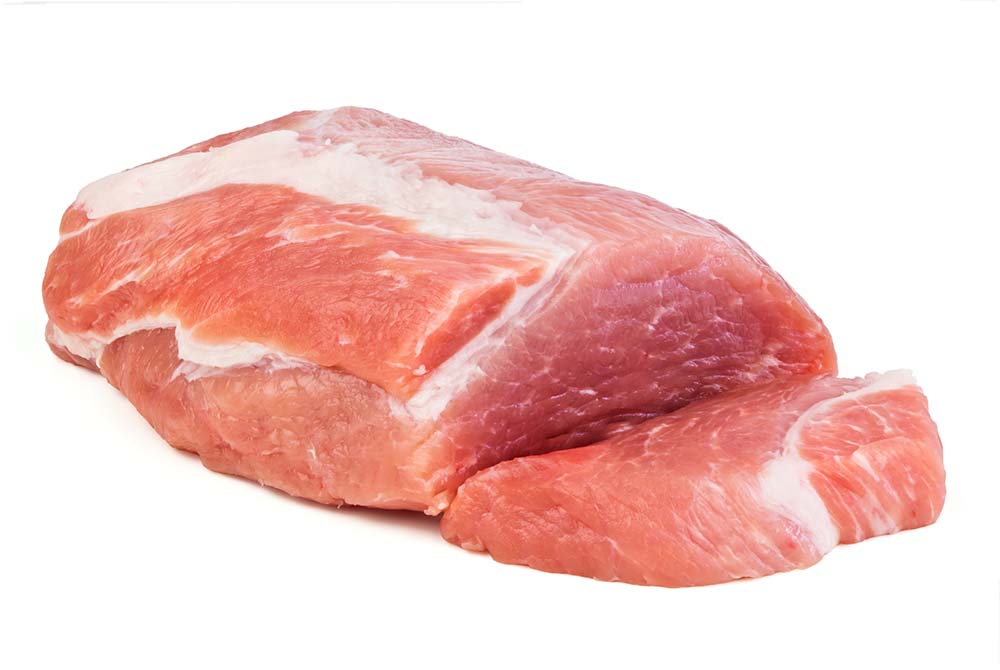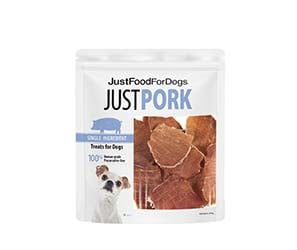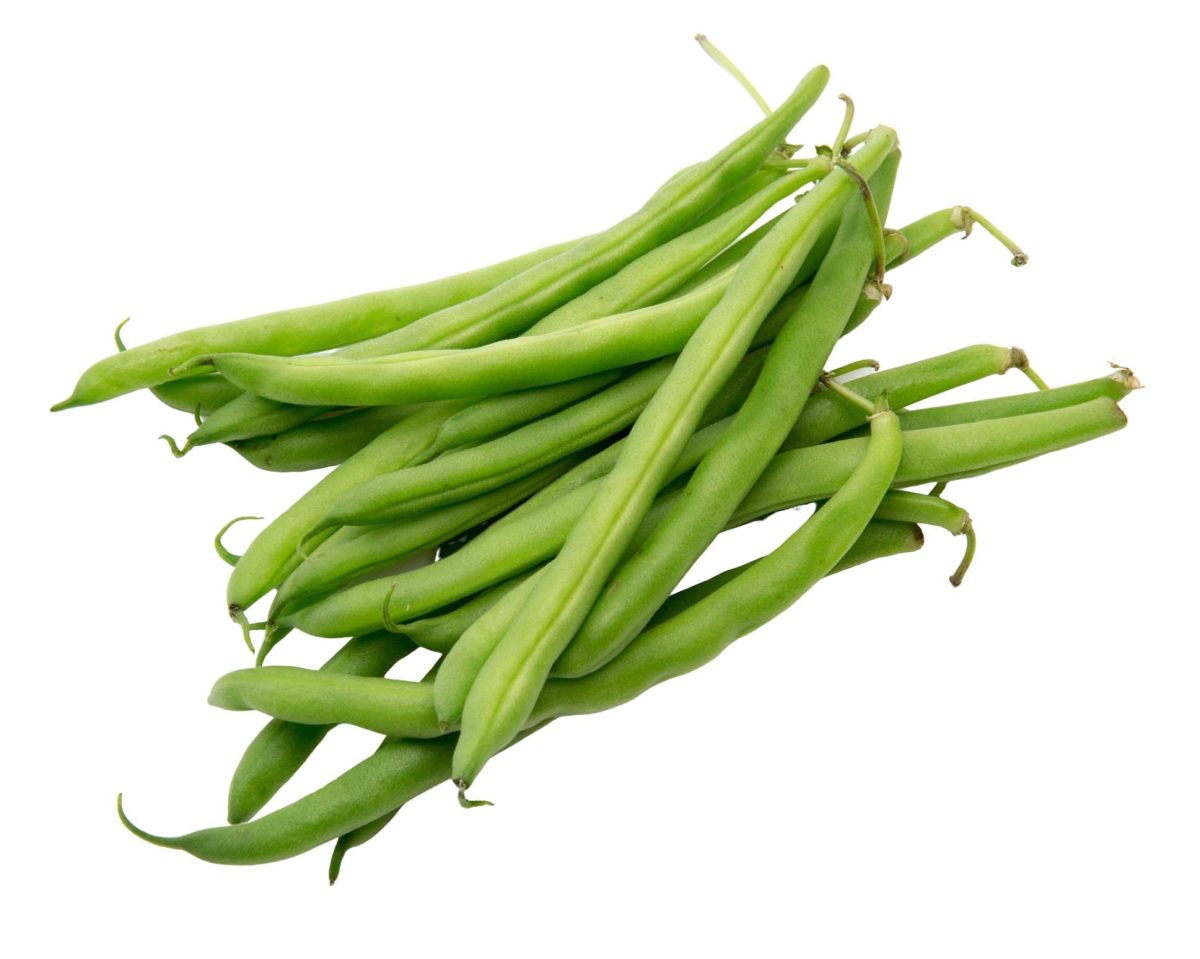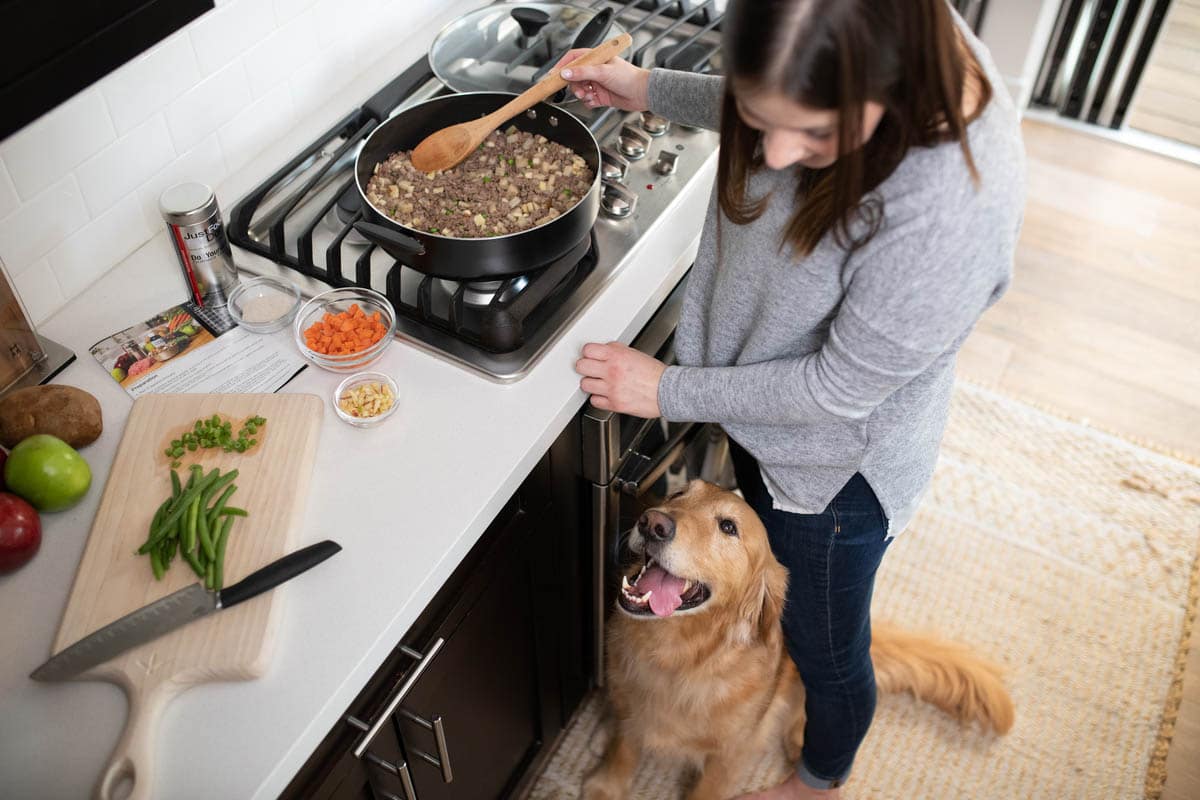Is Pork OK for Dogs?
Is pork OK for dogs? Yes, but it depends on the cut of meat. Here's everything pet parents need to know about giving their dog pork.
It’s not uncommon for loving pet parents to want to share human foods with their best friend. If that’s something you like to do, you might find yourself wondering if your dog can eat pork products. You might ask yourself, is pork ok for dogs? After all, it is the other white meat and supposedly has many benefits over feeding red meat.
Of course, pork can be an important source of protein, but whether or not it’s okay for your pooch depends on the types of pork you want to share and the preparation of the meat. Let’s take a look at what you can share and when you have to be careful about your dog’s health.
Is Pork Safe for Dogs?
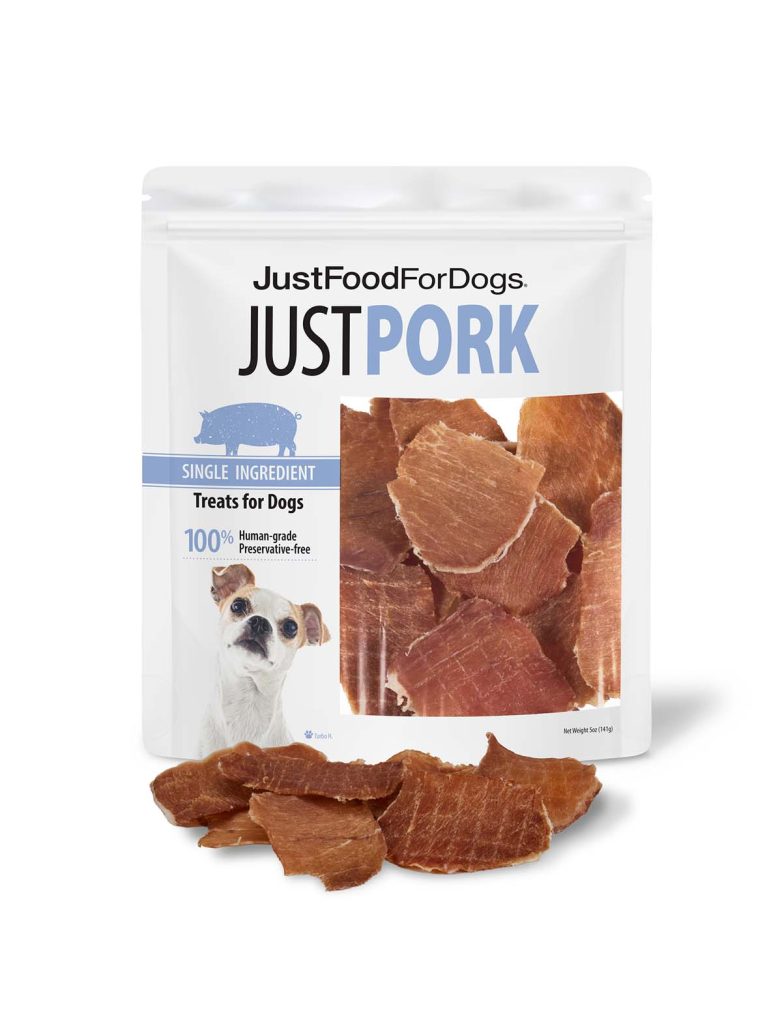
If you’re thinking of feeding your dog plain, cooked pork, that is generally safe for your dog to eat. What you have to be aware of is that certain seasonings and spice rubs that dog owners like are not always good as part of their dog’s diet.
In fact, some ingredients can be highly toxic to your dog. Some toxic additives include onion powder, nutmeg, and garlic powder. To make sure you’re avoiding those ingredients, it’s also best to stay away from giving your dog food cooked in condiments like barbecue sauce.
Aside from the fact that certain sauces might contain onion and garlic, they also often are high in salt and sugar, which isn’t good for your pooch’s digestive system or weight. While it is fine to occasionally share pork chops with your dog, as with humans, too much of a good thing can cause problems like obesity.
To avoid problems, it’s probably a good idea to share only small pieces of pork and nothing with too much fat. You also want to make sure you stick to high-quality cuts of pork. Processed meats and low-quality pork products can cause stomach upset and other digestive issues.
What About Processed Pork?
Processed pork, like bacon and ham, may contain certain preservatives and additives that aren’t healthy for humans or dogs. In fact, the World Health Organization (WHO) found that processed meats contain substances that can cause cancer.
What’s more, the high-fat content of bacon, along with its saltiness, can be too much for your dog’s stomach to handle. As your dog’s digestive system works to break down the fat, it can cause inflammation of the pancreas. That’s a condition known as pancreatitis, and it can be fatal.
The increased thirst caused by salty processed meats like bacon can also cause problems. Specifically, it can cause a condition known as bloat. Bloat occurs more commonly in large-breed dogs, and it usually requires surgery to correct.
For these reasons, it’s better to avoid feeding your dog pork that is processed like bacon and ham. Stick to the kinds of pork that are cooked and fresh. Moreover, avoid any meats or dog treats that have a high salt content. That can help you steer clear of gastrointestinal problems and other issues, so you can ensure your beloved buddy remains a healthy dog for many years to come.
What About Raw Pork — Can Your Dog Eat That?
Raw pork isn’t good for humans, and it isn’t good for your dog, either. Part of the problem with undercooked pork or raw food (and FYI – undercooked or raw polar bear meat, in case you have sled dogs) is that it can contain parasite larvae called Trichinella spiralis. If ingested, this parasite can cause what is known as trichinosis.
This infection is known to be transmitted to humans and dogs by pork meat. Typically, it occurs if your dog ingests the muscles of animals infected by the parasite. Though it occurs more commonly in humans, it can produce the following symptoms in your dog:
- Lethargy
- Upset stomach
- Vomiting
- Diarrhea
- Fever
- Pain and stiffness
- Muscle inflammation
If your furry friend has eaten pork and has these symptoms, it will be important to make an appointment to see the vet as soon as possible to prevent a more serious problem.
Can Dogs Eat Pork Bones Like Rib Bones?
Like many people, you may believe that your dog needs to eat bones to keep his teeth healthy or to occasionally help with digestion. Unfortunately, there are several problems with feeding your dog bones of any kind, including fan favorites like pork ribs.
Both cooked bones and raw bones can splinter into sharp pieces when your dog eats them. That splintering can then cause serious dental and digestive problems. The splinters can damage the esophagus and other internal organs as they pass through your dog’s digestive system.
What’s more, the bone pieces can be a choking hazard for your dog. If you really want to give your dog a treat, consider offering him some high-quality dog treats that will keep his tail wagging and his digestion healthy.
There are also better alternatives to bones for him to chew on that are less likely to splinter. These include fake rawhide bones and deer antlers, as well as various chew toys. These are much better choices for that puppy in your life.
What Kind of Fresh Food is Good for Dogs?
While every dog is unique, in general, good dog nutrition includes meat and vegetables. Unlike cats, dogs are not consummate carnivores. They derive nutritional value from some vegetable matter.
But it’s important that dog food not only be nutritious, it has to also be palatable and highly digestible. Experts in the Department of Animal Sciences and the Division of Nutritional Sciences at the University of Illinois Urbana-Champaign tested the amino acid and nutrient digestibility of human-grade dog foods made with whole ingredients.
They found them to be highly digestible. The digestibility, when combined with palatability, makes whole foods a great choice for your pooch. Such foods are better than something like raw meat or even cooked pork or beef for providing your best friend with the complete nutrition he needs to enjoy many years of good health.
Choose Fresh
JFFD is dedicated to providing fresh dog food that uses gently cooked whole ingredients. Not only did we provide the dog foods for the study linked above, but the food is also palatable.
Each human-grade meal is made with whole food that has been gently cooked to provide superior nutrient absorption.
This content is for informational use only and does not replace professional nutrition and/or medical advice, diagnosis, or treatment. It is not a substitute for and should not be relied upon for specific nutrition and/or medical recommendations. Please talk with your veterinarian about any questions or concerns.
